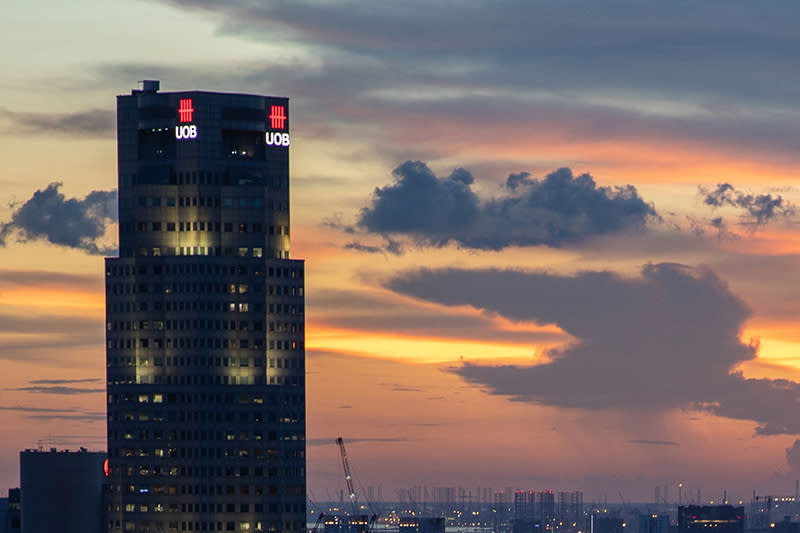UOB and OCBC’s Share Prices Are Nearing Their 52-Week Lows: Can They Recover?

There has been a flurry of worries surrounding the economy in recent months.
With the outbreak of the Russia-Ukraine war, along with disrupted supply chains and high inflation, many stocks have tumbled as investors grow jittery.
However, it’s under these trying circumstances that you can find juicy bargains.
Share price falls should be viewed as opportunities to acquire shares of strong companies on the cheap to hold for the long run.
The three local banks qualify as suitable investments to consider as they are reputable blue-chip companies with solid track records.
Valuation-wise, DBS Group (SGX: D05) is the most expensive, trading at a price-to-book (P/B) ratio of 1.43 times.
Both United Overseas Bank Ltd (SGX: U11), or UOB, and OCBC Ltd (SGX: O39) are trading at P/B ratios of 1.1 and 0.98 times, respectively.
UOB and OCBC are also trading close to their respectively 52-week lows of S$25.28 and S$10.98.
Can the share prices of these two banks stage a recovery?
Rising net interest income
The US Federal Reserve recently initiated its largest rate hike in 28 years by raising the Federal Funds Rate by 0.75 percentage points.
The move was to bring down inflation which hit a 40-year high of 8.6% back in May.
The good news is that banks thrive on higher interest rates as they can dole out loans at steeper rates, thus improving their net interest margin (NIM).
And as NIMs improve, they also provide an uplift to the banks’ main income source – their net interest income (NII).
UOB and OCBC have indicated that their NII will improve by S$600 million and S$700 million, respectively, for every percentage point increase in the Federal Funds Rate.
This represents a 9.4% boost to UOB’s NII for its fiscal 2021 (FY2021) and a close to 12% jump in OCBC’s NII for the same period.
Investors may need to wait a few quarters to see the full impact, though, as banks will need time to fully reprice their loans.
The Federal Reserve may also continue raising rates later this month and during subsequent meetings, thereby providing a further tailwind to both NIM and NII.
Acquisition to grow its franchise
Apart from organic growth, investors can also look to acquisitions to increase the bank’s revenue stream and bolster its franchise.
UOB announced its first acquisition in 17 years back in January this year, purchasing the consumer banking business of Citigroup (NYSE: C) in four countries – Malaysia, Indonesia, Thailand, and Vietnam.
The acquisition includes the US bank’s unsecured and secured lending portfolios, wealth management unit and retail deposits business.
The purchase aimed to accelerate UOB’s customer growth and enable it to leapfrog ahead of the competition, a much quicker method than growing its franchise organically.
Potential headwinds
Despite the good news, investors need to watch for potential headwinds that may crop up if a recession does hit our shores.
Three areas of the banks will be negatively impacted should this event come to pass.
The first is fee income from wealth management and credit cards, as people will generally invest and spend less during a downturn.
Secondly, loan growth may be anaemic or even turn negative as higher interest rates may deter some companies from taking on debt.
Finally, an economic slowdown may result in more borrowers having difficulty servicing their loans, resulting in higher provisions to be made by the banks.
Reliable dividends
Both UOB and OCBC have shown their willingness to reward income-seeking investors with dividends.
UOB paid out S$1.20 per share for FY2021 while OCBC dished out S$0.53, translating to a dividend yield of 4.5% for UOB and 4.7% for OCBC.
During challenging times, investors can rely on the banks to provide a continuous stream of unbroken passive income to tide them through.
Get Smart: Resilient and dependable
UOB and OCBC have shown themselves to be resilient despite the pandemic, and their dividends are also dependable.
Higher interest rates will serve as a tailwind for the business while UOB’s acquisition should also see it broadening its reach and boosting its customer base.
Although there are immediate risks on the horizon, investors should take the long view when it comes to investing in these banks.
Any downturn will eventually pass and these two banks have proven that they can weather numerous business cycles successfully over the decades.
Can you really make money during a recession? Our team has done it multiple times throughout our investing career. And in our upcoming webinar, we’ll reveal our strategies to successful investing during a downturn. Plus, uncover the mindset “secrets” to stay calm, focused and to make smarter investing decisions. Click here to reserve a FREE seat in our “How to make money during a recession” webinar!
Follow us on Facebook and Telegram for the latest investing news and analyses!
Disclaimer: Royston Yang owns shares of DBS Group.
The post UOB and OCBC’s Share Prices Are Nearing Their 52-Week Lows: Can They Recover? appeared first on The Smart Investor.

 Yahoo Finance
Yahoo Finance 